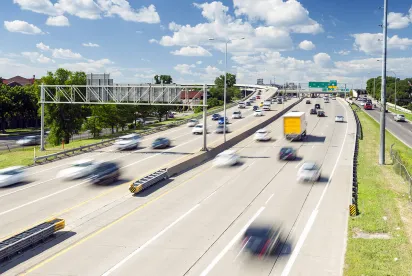Most readers are likely now familiar with the initial travel guidance for international travel issued by the U.S. Centers for Disease Control and Prevention (CDC). Since then, governors have taken the lead in issuing orders related to COVID-19 for, among other things, closing businesses, mandating citizens stay home, and only permitting essential businesses to operate. Along with those orders, many have issued guidance related to quarantines for out-of-state travelers, including those who have only traveled domestically within the United States. Many of these orders are expressly aimed at discouraging interstate travel other than for essential services.
Domestic Interstate Travel Orders: The Basics
Many states have issued guidance regarding interstate travel. The guidance ranges from governors’ orders to public health notices from state officials. In some cases, the states are merely relying on the CDC’s travel guidance, which does not include domestic travel guidelines. In an effort not to hinder essential business travel, the overwhelming majority of states have issued interstate travel quarantines that specifically exempt essential businesses. As states begin reopening, these orders are regularly changing, and directly impact how and when employees can begin business travel. The reopening orders are vastly different from state to state, which affects the travel guidance issued by each state.
Quarantine Restrictions and Essential Businesses
Is the quarantine mandatory?
For some states, the guidance does not come from a governor’s order (e.g., Maine), but springs from the advice of the state’s health department (e.g., Ohio). The guidance may also originate from a travel advisory. Determining whether employees must abide by a travel quarantine will require checking to see whether the quarantine is mandatory, or only encouraged.
A few states require anyone traveling from out of state to immediately self-quarantine for a period of 14 days, while many other states strongly urge or recommend such quarantines. Even within that quarantine guidance, states have regularly exempted (1) travel for essential activities (i.e., to provide medical or home care for others) and (2) travel necessary for jobs at essential businesses.
What is an essential business?
Determining whether a company is “essential” requires a careful review of all applicable orders and guidelines. In many instances, state closure and reopening orders define an “essential business” and include references to the Department of Homeland Security’s Cybersecurity and Infrastructure Security Agency’s Guidance on the Essential Critical Infrastructure Workforce.
As states reopen, many with phased reopening plans, companies may want to regularly confirm the current guidance related to which businesses may be open and whether travel to a particular state may result in an unintended quarantine.
What Can Employers Expect Next?
Many companies are expecting visitors to complete travel questionnaires that detail recent travel destinations. Also, many mass transit carriers, including airlines, are requiring passengers to wear face coverings.
To address these issues, employers that require their employees to travel for work may want to consider requiring them to maintain a travel log and plan trips as far in advance as possible in order to meet any requirements for visiting client or other sites. In addition, employers may want to ensure that employees either have their own face coverings or provide them with face coverings to use when traveling unless an accommodation would require otherwise.





 />i
/>i

